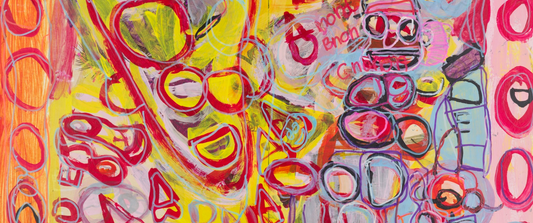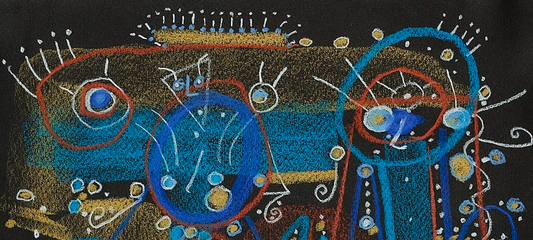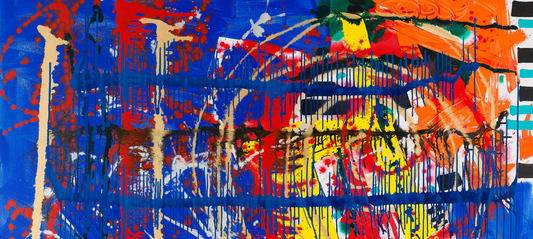First published: Spring 2024
Bonaria Manca painted her home with images of her youth as a shepherdess in Sardinia, then with the ancient history she saw in the stones of a new land
The twelfth of 13 children in a family of shepherds, Bonaria Manca was born in 1925 in Barbagia, a rough, mountainous region of inner Sardinia. Her imagination was shaped by the nature and architecture of the area, its history and legends, and the numerous dolmens, menhirs and megalithic constructions from the Nuragic culture found there.

Bonaria Manca in 2015; photo: Giuseppina Proietti
From the age of five, Manca helped her parents with chores around the house and farm, washing wool and clothes in the river, baking bread, planting potatoes in the garden, and even driving the oxen if required. She also learned the fundamentals of needlework. It was a bucolic existence that would forever be etched in her mind. She attended elementary school but, after the death of her father, she had to halt her studies and devote herself entirely to housekeeping and serving the church. The 1950s saw a mass exodus of her family members to Tuscania, a town in the historical region of Tuscia on the Italian mainland. In 1956, Manca followed them.

Partition wall between the artist’s living room and bedroom; photo: Paola Manca
She felt like an outsider in Tuscania, a farming area, and – proud of her pastoral origins – she maintained her shepherding lifestyle. While her sisters were getting married, she decided to become a shepherdess – a job which, back in Sardinia, women were not permitted to do. Independent and non conformist, Manca cared for her flocks on horseback, sometimes without saddle or reins, wearing whimsical clothing that she had woven by hand herself using the wool of her sheep.

A corridor wall that Manca painted in oils and chalks; photo: Paola Manca
In 1967, the Mancas bought a large estate and house on one of the region’s many rocky hills. It became the family farm which Manca took care of with her mother and one of her brothers. The lush land around her, with its borders of forests and rocky hills, had been one of the centres of ancient Etruscan civilisation, and Manca was enchanted. The profound connection she felt with the place allowed her to overcome her feelings of isolation and to lay down roots. Spending so much time in the quiet of nature inspired her poetically and she would sing songs about her past and her philosophy of life with lyrics such as: “Forget yesterday, be reborn every day.”
By ROBERTA TRAPANI
This is an article extract; read the full article in Raw Vision #118.




